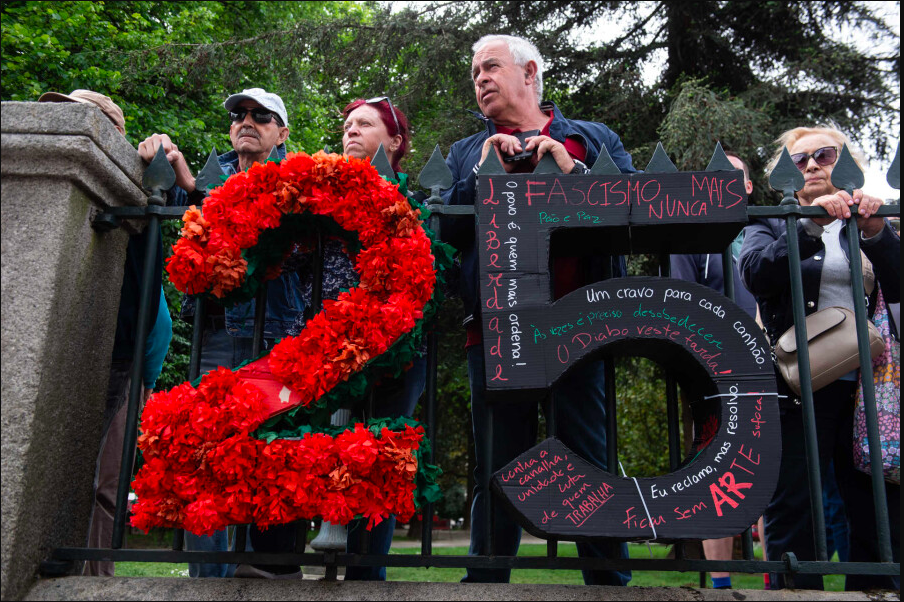
Published 04/25/2024 16:10 | Edited 04/25/2024 16:57
Despite the absence of President Luiz Inácio Lula da Silva at the celebrations marking the 50th anniversary of the end of the Portuguese dictatorship, the Brazilian government issued a note highlighting the role of the Carnation Revolution in the construction of democracy and decolonization in Africa.
“The events of April 25, 1974 marked the beginning of the redemocratization of Portugal, a period in which the country defeated fascism and recognized the right to self-determination of all peoples,” said Itamaraty in a statement.
The reference to the defeat of fascism comes amid the rise of the extreme right in Portugal and the constant criticism directed at the Brazilian president. Since the Socialist Party lost the government to the right, including the emergence of the conservative party Chega!, led by André Ventura, the Brazilian president has been the target of attacks.
Read also: 50 years of the Carnation Revolution
Portugal celebrates Carnation Revolution to not forget fascist misery
50 years of the Carnation Revolution: confronting the extreme right
“The Carnation Revolution bequeathed to Portugal a plural and inclusive political system, aimed at building a free, fair and democratic society”, highlighted the Itamaraty.
Despite Lula’s absence, the Brazilian government is being represented by Chancellor Mauro Vieira at the commemorative events. During his visit, Vieira will meet with his Portuguese counterpart, Paulo Rangel, to discuss issues on the bilateral, regional and multilateral agenda.
Relations between Brazil and Portugal are highlighted by Itamaraty as unique, due to the history shared by the two countries. Portugal is an important trading partner of Brazil in Europe, with a trade flow of US$4.7 billion in 2023, resulting in a surplus of US$2.7 billion for Brazil. Furthermore, more than 400 thousand Brazilians currently reside in Portugal.
Vieira’s visit comes one day after the Portuguese government signaled its recognition of the crimes committed during slavery and colonialism. The Minister of Racial Equality, Anielle Franco, indicated that her ministry is in contact with Portuguese authorities to discuss possible forms of reparation.
Amid celebrations for the 50th anniversary of the 25th of April, Portugal is holding a series of events that include a formal session in Parliament, a parade on Avenida da Liberdade in Lisbon, and cultural exhibitions across the country. President Marcelo Rebelo de Sousa will be present at several of these activities, which mark half a century since the end of the dictatorship in Portugal.
Source: vermelho.org.br

